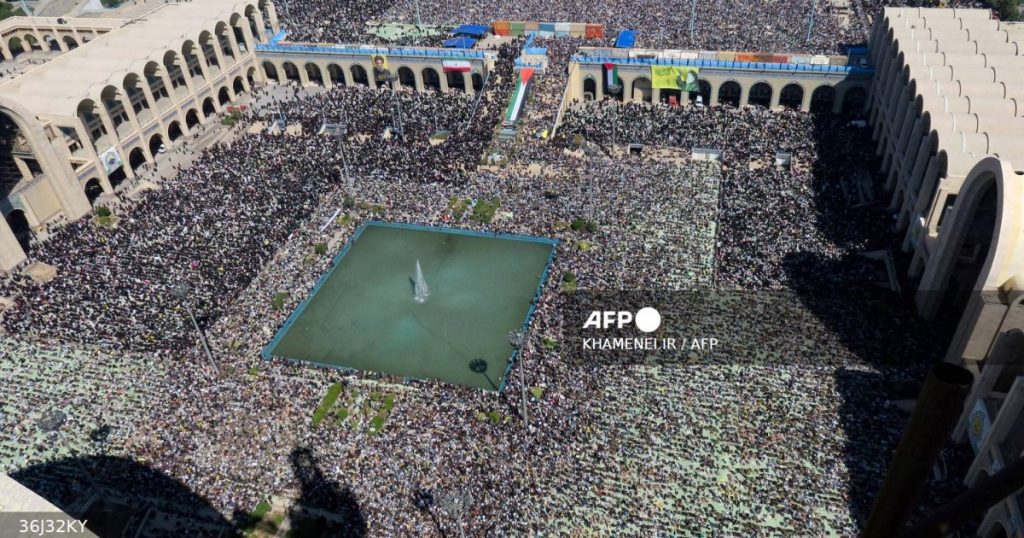Iran’s Supreme Leader Ayatollah Ali Khamenei recently delivered a rare Friday sermon in Arabic, amidst escalating tensions in the Middle East following a missile attack on Israel. Speaking to a large crowd at the Imam Khomeini Grand Mosalla mosque in Tehran, Khamenei expressed support for Iran-aligned groups in the region, including Hezbollah and Hamas. He emphasized their resilience in the face of Israeli aggression and argued that the “axis of resistance” would not yield to pressures following Israeli strikes that have targeted militant leaders. His comments showcased Iran’s commitment to supporting armed resistance against Israel, reinforcing a narrative that has been central to Tehran’s foreign policy since the Islamic Revolution of 1979.
Khamenei’s sermon touched on the recent escalations in violence, particularly highlighting the ongoing Gaza conflict that reignited with Hamas’s unprecedented October 7 attack on Israel. He praised the fierce defense mounted by Iran-backed militant groups, stating that their actions were both “logical and legitimate.” Khamenei reassured his audience that these groups would continue their struggle against what he termed the “usurping Zionist regime” and criticized foreign powers who question their right to resist. He carried a rifle during the sermon, a symbolic gesture meant to indicate Iran’s readiness to confront perceived threats, a customary practice among Shiite leaders.
The sermon came just days before the first anniversary of the Gaza war, marked by retaliatory missile strikes from Iran aimed at Israel. Khamenei justified these actions as “the minimum punishment” for what he described as the crimes committed by Israel. He accused Israel of relying on American support to sustain its regime, suggesting that its existence is tenuous and would not endure in the long term. Khamenei’s rhetoric aims to rally support both domestically and within the broader Muslim world, as he portrayed Iran’s military actions as a necessary response to Israeli aggression and a defense of Palestinian rights.
Additionally, Khamenei lauded the legacy of key figures in the resistance movement, including Hezbollah chief Hassan Nasrallah and Hamas leader Ismail Haniyeh, both of whom have been targeted by Israel. The symbolic mention of their martyrdom serves to strengthen the resolve of their followers and highlight the sacrifices made in the ongoing conflict. The Iranian leadership’s narrative positions these figures as champions of resistance against a common enemy, thereby fostering a collective identity among Iran’s allies in the region.
Although Khamenei praised the armed groups and emphasized their rights to retaliate, he also reiterated that Iran is not directly involved in the attacks planned by these groups in Palestine. This distinction is important for Tehran, which seeks to maintain a veneer of plausible deniability while it fosters relationships with these militant organizations, reinforcing its role as a regional power that supports anti-Israeli activities without overtly engaging in direct conflict with Israel itself.
The implications of Khamenei’s sermon, filled with defiance against Israel, reflect Iran’s broader geopolitical strategy. By reinforcing its commitment to the “axis of resistance,” Khamenei is not only addressing the immediate crisis in the region but also rallying support for Iran’s position on the international stage. As tensions continue to rise, the alignment of various militant groups under Iran’s influence poses significant challenges for regional stability, suggesting that conflicts could escalate further if diplomatic solutions remain elusive.














